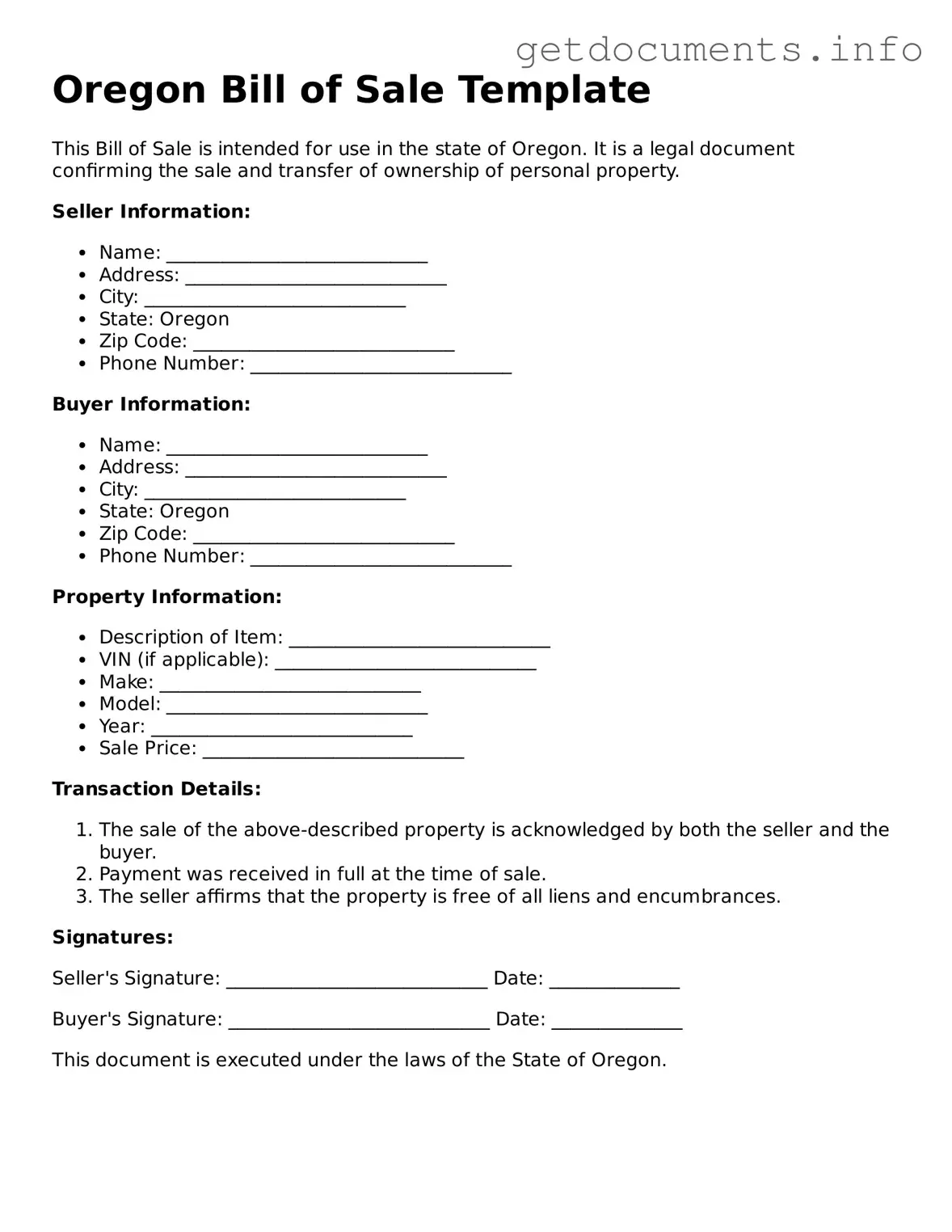Free Bill of Sale Template for Oregon
A Bill of Sale is a legal document that serves as proof of the transfer of ownership of an item from one person to another. In Oregon, this form is essential for various transactions, ensuring that both parties have a clear record of the sale. Understanding how to properly complete this document can help protect your rights and interests in any sale.
To get started on your Bill of Sale, click the button below.
Access Bill of Sale Editor

Free Bill of Sale Template for Oregon
Access Bill of Sale Editor
Got places to be? Complete the form fast
Fill out Bill of Sale online and avoid printing or scanning.
Access Bill of Sale Editor
or
⇩ PDF File
